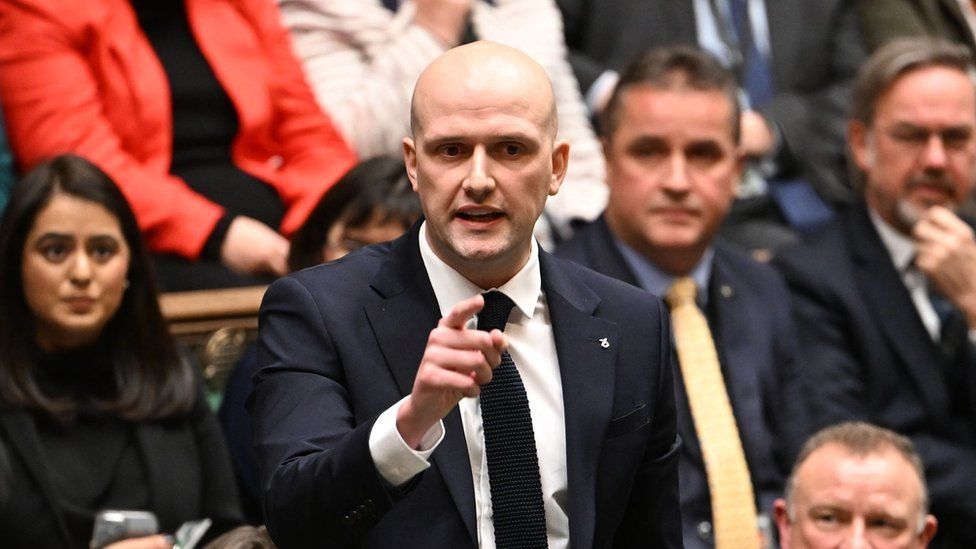ARTICLE AD BOX
 Image source, UK Parliament
Image source, UK Parliament
SNP Westminster leader Stephen Flynn declared no confidence in the Commons Speaker after this week's chaos
The SNP says it will push for another Commons debate on Gaza following the chaotic vote on the conflict on Wednesday.
There was uproar in the Commons when Speaker Sir Lindsay Hoyle allowed MPs to vote on a Labour amendment to the SNP's ceasefire motion.
It meant the SNP motion was not voted on, prompting the party to say Sir Lindsay should quit as Speaker.
The SNP now says it will apply for another debate on the issue next week.
Sir Lindsay, who has apologised for his handling of the debate, has already indicated he would allow a fresh debate under emergency rules.
This could prove awkward for Labour, which has been plagued by division over its stance on the Israel-Hamas war.
However, it is unclear whether another debate will allow the SNP to force a vote that drives a wedge between other parties on the issue.
In a statement, it said it wanted to have an emergency debate on a motion setting out "concrete actions" the UK could take to promote a ceasefire at the United Nations.
The party's Westminster leader Stephen Flynn said this would allow MPs to "move the debate forward" by putting pressure on the government to take a firmer pro-ceasefire stance.
The SNP said it wanted to do this through a little-used Commons procedure that allows emergency debates to take place at short notice.
But Commons rules suggest the process allows only for a vote on a neutral motion, where MPs simply state they have generally considered an issue rather than making a decision.
The SNP will have to formally apply for the debate after the Commons returns on Monday, potentially prompting fresh scrutiny over Sir Lindsay's handling of Commons procedure.
Heightened scrutiny
Ahead of last Wednesday's debate, the SNP motion called for an "immediate ceasefire"; Labour demanded an "immediate humanitarian ceasefire", while the government had also tabled its own amendment calling for an "immediate humanitarian pause".
Both Conservatives and SNP MPs were angered by the speaker who broke with convention and allowed a vote on a Labour amendment.
The government then withdrew from taking part in the vote in protest, meaning Labour's amendment was waved through and the SNP's motion - which was meant to be the entire focus of the day - wasn't formally voted on at all.
Sir Lindsay argued that letting MPs vote on a wider range of positions would protect them from threats to their safety, amid heightened scrutiny of their stance on the conflict.
But it allowed Labour to sidestep a potentially damaging rebellion over whether it supported the wording of the SNP's ceasefire call, which also criticised the "collective punishment of the Palestinian people".
Labour's own amendment supported a ceasefire but noted that Israel "cannot be expected to cease fighting if Hamas continues with violence".
This prompted accusations Sir Lindsay had played "party politics" with the vote, with more than 70 MPs since declaring no confidence in him as Speaker.
The SNP said it would hold discussions with Sir Lindsay before publishing the motion it wants to see debated. He has already said he backs the idea of holding a further debate.
However, if the SNP tables a motion detailing a range of specific demands on the government, it could put Sir Lindsay in an awkward position.
His predecessor, John Bercow, prompted an outcry in 2019 by allowing MPs opposed to a no-deal Brexit to use such an emergency debate to take control of the Commons timetable.
This was seen as another controversial break with convention, by allowing an emergency debate to pave the way for MPs to make a binding decision.

 1 year ago
82
1 year ago
82








 English (US) ·
English (US) ·